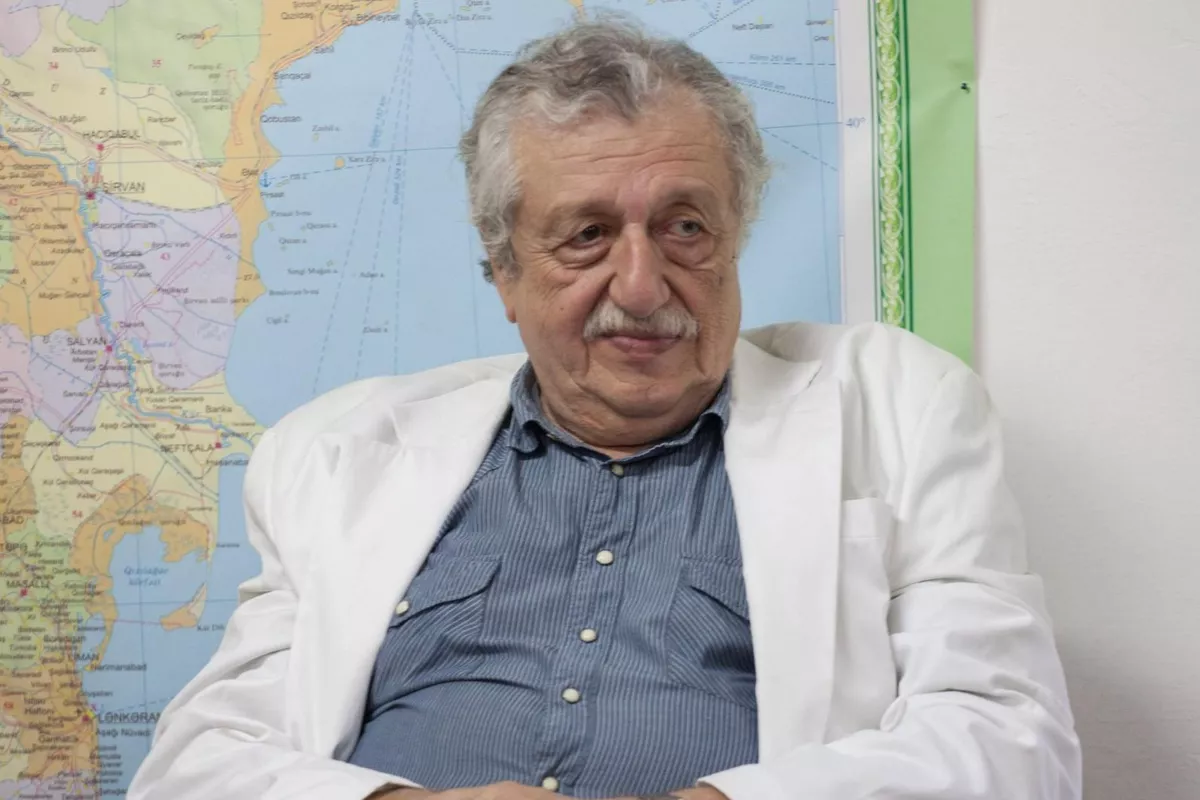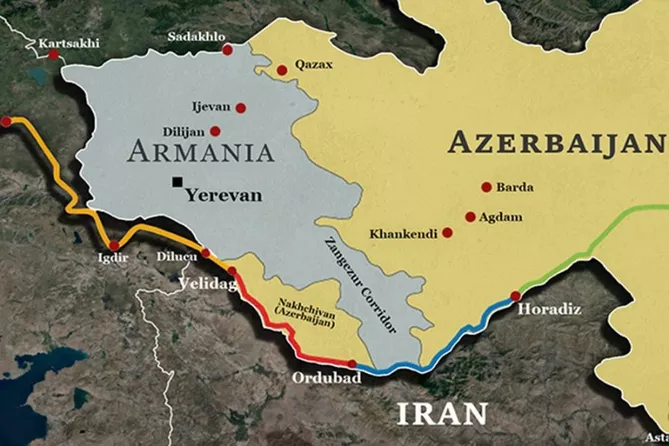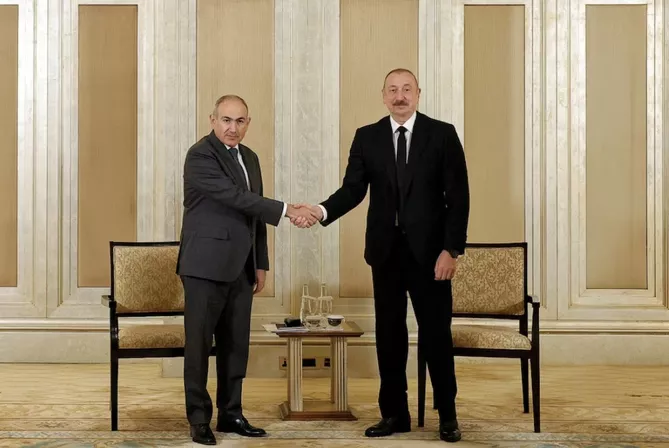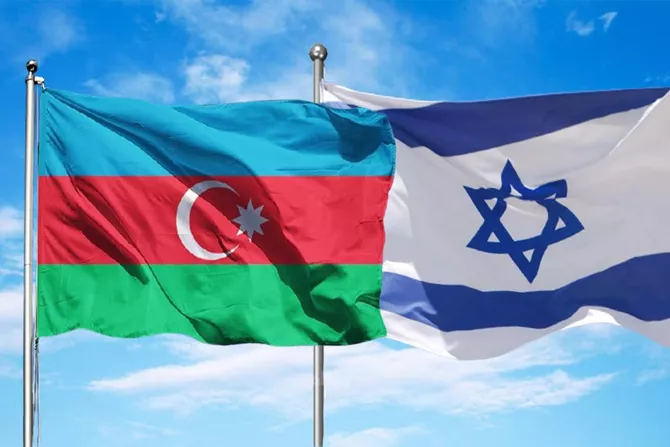
On July 10, in Abu Dhabi, in an atmosphere of strategic restraint and without intermediaries, a crucial bilateral meeting took place between the President of Azerbaijan, Ilham Aliyev, and the Prime Minister of Armenia, Nikol Pashinyan.
To understand why Abu Dhabi was chosen as the venue for this dialogue, what signals this format conveys, and what role the Zangezur Corridor plays in the new routes to stability, The Caspian Post spoke to prominent political commentator and editor-in-chief of the Russian-language Israeli TV channel Aviv, Baku-born Mark Gorin.

Photo credit: https://journal-neo.su/
- Mark, how do you assess the significance of the July 10 meeting between the leaders of Azerbaijan and Armenia in Abu Dhabi? Can we say that the era of intermediaries is truly giving way to direct dialogue between the parties?
- To say that I highly value this event is to say nothing at all. Such a statement would actually be superficial and unfair in relation to such a meaningful occasion and historic moment.
In my view, we are witnessing a major milestone in the peace process-one that became possible only after a very difficult period in the relations between the two countries and their peoples. The meeting between President Ilham Aliyev and Prime Minister Nikol Pashinyan lasted nearly five hours, both in expanded delegations and one-on-one. That alone, I believe, is an extraordinary event.
What gives this meeting particular importance is the fact that it was conducted in direct contact-without intermediaries. That lends it a unique political dimension. This new format of interaction-where the sides communicate directly and without external pressure-effectively replaces outdated, mediator-driven schemes and signals a growing level of mutual trust. And trust, after all, is the rarest commodity in conflict zones.
Its presence in this case not only enabled the dialogue to proceed constructively, but also became one of the key factors in the success of the meeting itself.
Of course, many observers expected dramatic, historic declarations. But in my view, the most important development has already taken place: the parties have begun talking to each other directly. That, in itself, is a historic shift.

Azerbaijani President Ilham Aliyev and Armenian Prime Minister Nikol Pashinyan meet in Abu Dhabi, United Arab Emirates July 10, 2025. / REUTERS
- Given Israel’s experience in security matters, how critical is the geopolitical neutrality of the venue for such meetings? What, in your view, does the choice of Abu Dhabi symbolize?
- Without question, the choice of venue for such meetings carries immense symbolic and practical significance-particularly in light of the Middle Eastern and Israeli experiences in diplomacy and security.
In the case of the Azerbaijan-Armenia meeting in Abu Dhabi, several key aspects deserve attention. First and foremost, what stood out was not merely the fact of the dialogue, but how it was organized. Eastern diplomacy places great importance on symbolism: every gesture, every detail of protocol-from who extended the invitation, who took the first step, to where and under what circumstances the meeting was held.
And in this context, it is especially important to note that the initiative came from the President of Azerbaijan, and the meeting took place at a venue chosen by both sides as neutral and respected. Abu Dhabi is not just a geographical point on the world map. The United Arab Emirates is a state with significant international standing-especially in the Islamic world-boasting strong economic performance and a track record of recognized efforts in mediation and conflict resolution.
The very fact that the UAE hosted such a delicate meeting reflects a high level of trust and expectation. Had the host country harbored doubts about the feasibility or seriousness of the parties' intentions, it would not have given the meeting such an official character.
One more detail is worth emphasizing: Abu Dhabi is a signatory of the Abraham Accords-agreements between Israel and several Muslim countries aimed at normalizing relations. Israel and the UAE have exchanged embassies, developed economic and technological ties, and together represent a new model of the Middle East-one where cooperation replaces hostility.
Israeli commentators have pointed out that Azerbaijan’s involvement in this emerging format adds an important dimension-demonstrating that the path to mutual understanding in the Middle East is possible without war and bloodshed-through trade, negotiations, and shared interests.
Therefore, the choice of Abu Dhabi represents not only the neutrality and high prestige of the venue but also a new era-an era in which conflicts are resolved through diplomatic efforts rather than armed confrontations. It is a step toward sustainable peace-one that respects history but keeps its eyes firmly on the future.
- Israel closely monitors changes in regional logistics and energy. How do you assess the importance of the Zangezur Corridor for the regional economy, Israel’s energy strategy, and global security?
- As someone from Baku, I understand very well what the Zangezur Corridor means. For us, it is more than a geographic term-it is a symbol of strategic importance and one of the key topics in modern geopolitics, now recognized worldwide.
We’re talking about a relatively short, 42-kilometer stretch that carries enormous weight. It is meant to link mainland Azerbaijan with its Nakhchivan exclave and onward to Türkiye, opening a direct overland route. This corridor would allow Azerbaijan, along with other member states of the Organization of Turkic States, to forge closer economic and logistical ties with Europe through the South Caucasus.
Essentially, we are looking at a new trade and transportation route connecting East and West, Central Asia and Europe, bypassing narrow and congested traditional pathways. This has direct implications for energy security. Azerbaijan is one of the key energy suppliers, and its capacity to export oil and gas to Europe directly depends on logistics.

Photo credit: aze.media
Israel, as a state deeply interested in regional stability and the development of energy routes, cannot remain on the sidelines. Israel’s presence in the regional energy space, its technological potential, and its strategic partnership with Azerbaijan make this corridor not only an economic but also a political and security factor.
It is also worth highlighting the attention this project is receiving from major players such as Türkiye, Iran, Russia, and the United States. Even in the context of tense relations, Russia expressed support for the recent meeting between the Armenian and Turkish leaders-a gesture that may be seen as a diplomatic signal in favor of the corridor’s implementation.
The stepped-up diplomatic engagement by the United States in Azerbaijan further confirms Washington’s interest in the developments. In high-stakes diplomacy, nothing happens by chance. Everyone understands the value of symbolic moves-especially in a region where energy, transportation, and security are tightly intertwined.
Thus, the Zangezur Corridor’s significance extends well beyond a regional initiative. It is part of the formation of a new Middle Eastern architecture-one in which Israel, Azerbaijan, and Türkiye all play a role. If implemented properly, we will witness not only the creation of new routes but also the emergence of new strategic balances-founded on cooperation, mutual benefit, and long-term stability.
Share on social media